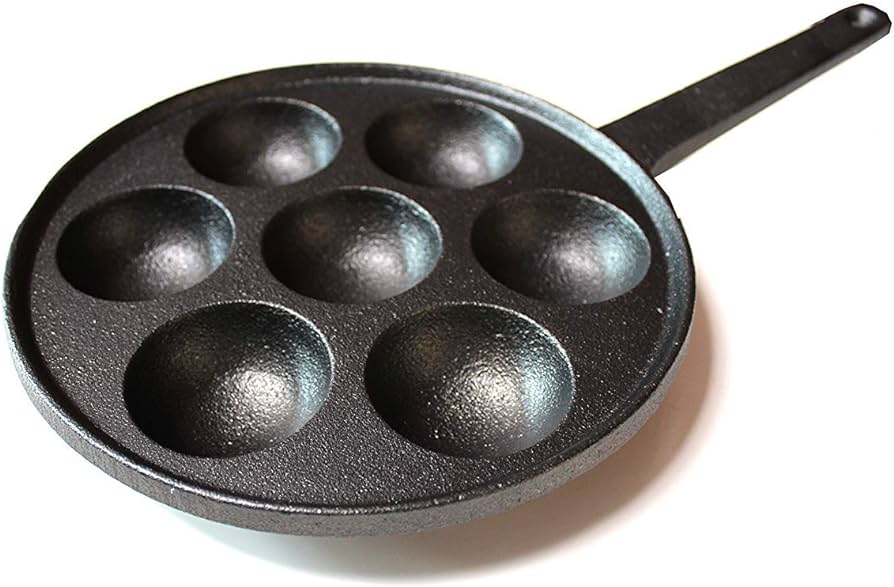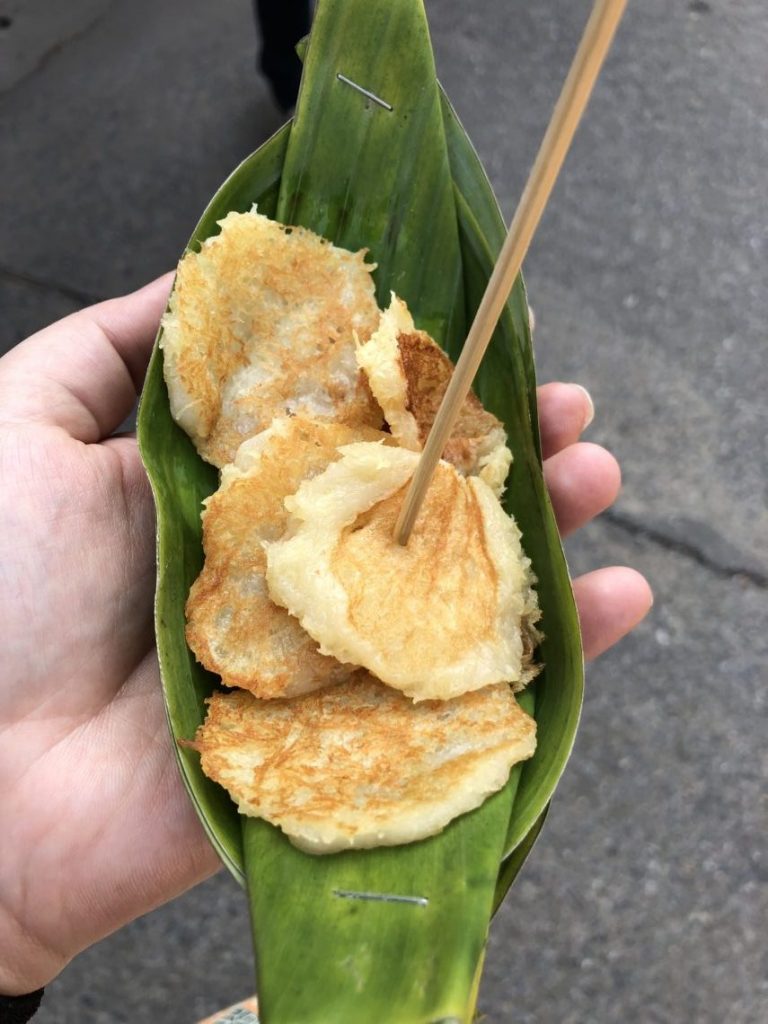One of the culinary gems that Thailand has to offer the world is the Kanom Krok, or Thai coconut pancakes. This popular street food snack has origins deeply rooted in Thai culture, and its unique flavor profile and texture make it a beloved treat among locals and tourists alike. Delve with us into its rich history, fascinating facts, and the numerous varieties of this delectable dish.
The history of Kanom Krok in Thailand is as rich and flavorful as the dish itself. It dates back to the Sukhothai period, which spanned from 1238 to 1438, making it a traditional dish with a history that’s as old as the Thai kingdom itself.
The dish is believed to have been influenced by Indian cuisine, specifically the Indian dish called Appam. This is a testament to the cultural intermingling that has shaped Thai cuisine over the centuries, resulting in the creation of dishes like Kanom Krok that are unique to Thailand but have a touch of global influence.

Kanom Krok is traditionally cooked in a cast-iron pan with several half-spherical molds, similar in design to an Æbleskiver pan. The batter, made from rice flour and coconut milk, is poured into these molds and cooked until it forms a crispy exterior and a soft, custard-like interior. This unique combination of textures is one of the defining features of Kanom Krok, and is a culinary experience that shouldn’t be missed.
But Kanom Krok isn’t just a street food snack. It holds a special place in Thai society and is commonly served at ceremonial occasions and as a temple offering. This highlights the significant role that food plays in Thai culture, not just as sustenance but also as a means of expressing respect and reverence.
The classic version of Kanom Krok is made from rice flour, coconut milk, sugar, and salt. However, the beauty of this dish lies in its versatility. There are many variations to this dish, each adding a unique twist to the classic recipe.
Some of the popular variations include adding corn, taro, or pumpkin into the batter. These ingredients not only add a burst of color to the dish but also enhance its flavor and texture. There’s also a savory version of Kanom Krok, often filled with green onions or even seafood, providing a delightful contrast to the sweet, creamy base.
In recent years, creative vendors have come up with new twists on this traditional recipe, such as adding matcha or chocolate. These innovative variations appeal to the younger generation and tourists looking for a unique taste experience, and show that even a dish with a history as old as Kanom Krok can keep evolving to suit modern tastes and preferences.
No matter the variation, one thing remains the same – the delightful experience of biting into a warm, crispy, and creamy Kanom Krok. Whether you’re a fan of traditional Thai cuisine or a food explorer looking to try something new, Kanom Krok is a must-try dish when in Thailand. Its rich history, fascinating facts, and variety of flavors make it more than just a snack. It’s a culinary journey through the heart of Thailand.
Thai Coconut Pancakes – Kanom Krok
Kanom Krok is a super sweet, but very nice little snack. It's so sweet it's impossible to eat a lot of it. Those coconut pancakes are crispy on top and creamy inside. Tried it on the floating market in Bangkok and loved it.
Ingredients
Instructions
-
Mix well flour, coconut, sugar and coconut milk.
If you can't find Sweet Rice flour good substitute is tapioca flour, potato starch or cornstarch. -
Add jasmine water and mix together
If you can't find jasmin water in the store try to look for jasmin food flavoring and add a bit to normal water or just use normal water. -
Add oil to frying pan and heat it well
-
Form small pancakes on the pan and fry on both sides until golden.
-
Set aside to cool down
Nutrition Facts
Servings 2
- Amount Per Serving
- Calories 1329kcal
- % Daily Value *
- Total Fat 98.2g152%
- Saturated Fat 86.3g432%
- Sodium 980mg41%
- Potassium 899mg26%
- Total Carbohydrate 86.1g29%
- Dietary Fiber 17.7g71%
- Sugars 25g
- Protein 13.7g28%
* Percent Daily Values are based on a 2,000 calorie diet. Your daily value may be higher or lower depending on your calorie needs.


Suzanne
This looks so good! What a great combination of flavors!